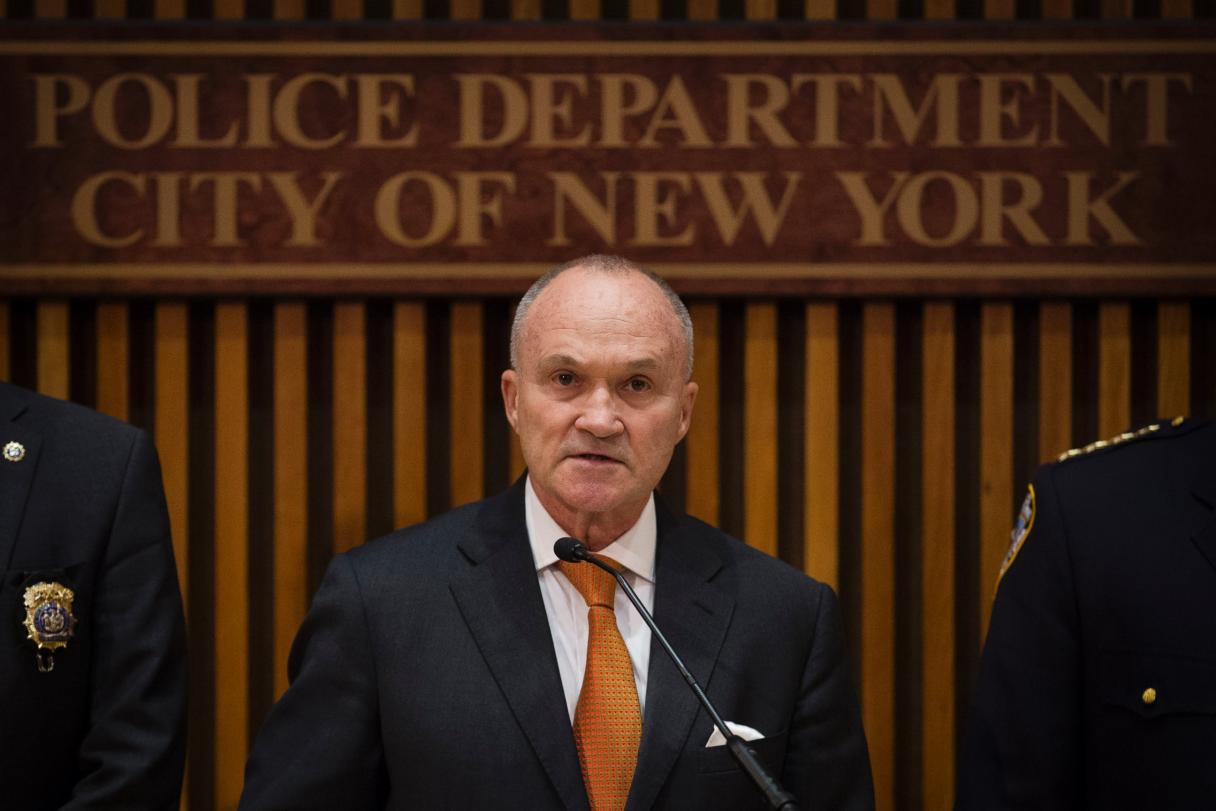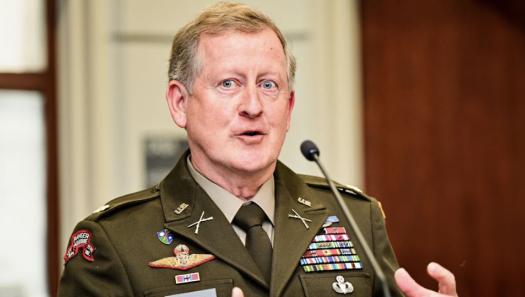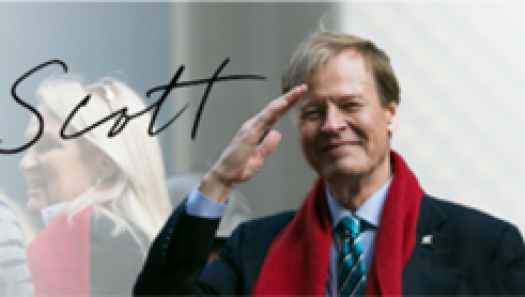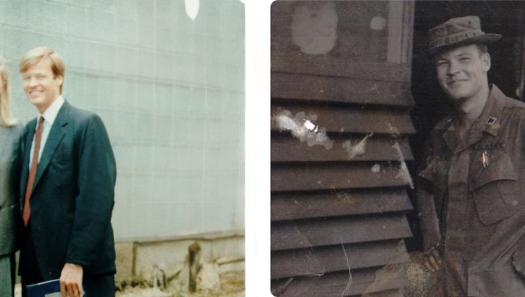WeSalute Awards
HeroVet: Ray Kelly, NYC Police Commissioner

The terrorist attack that collapsed the Twin Towers in Lower Manhattan seared the souls of Americans everywhere. For Ray Kelly, it was a defining moment.
Kelly, who had served as New York City police commissioner a decade earlier, who lived a block away from the World Trade Center, and who was then senior managing director for global corporate security at the investment bank Bear, Stearns and Company, saw the first tower crumble. "It was just hard to believe," he said. "I had been there the first time, right after the first bombing in 1993, and I remember looking around and thinking, This building can never fall. To see it crumble was just devastating."
At that moment, Ray Kelly knew he wanted "to get back into the game." With the election of Michael Bloomberg as New York City’s 108th Mayor, he got that chance – and became a footnote in history: Raymond W. Kelly is the first commissioner to serve two separate tours under two different mayors as New York City’s top cop.
It is a position he fills with grace, humility, conviction, determination, and an unstinting instinct to do what is right.
Call to the Corps
Being the PC of one of the most active police forces in the nation is not the culmination of any boyhood ambition. It was never Ray Kelly’s intention to join the NYPD. What this ramrod-straight fitness enthusiast wanted to be – what he was destined to be – was a Marine.
Ray Kelly is a native New Yorker. One of five siblings, he was raised in Manhattan and Sunnyside, Queens. His three older brothers had been Marines, and "from a very early age, when I was eight or nine years old, I knew I would go into the Corps. I had no choice."
He was attending Manhattan College and working as a stockboy at Macy’s in midtown Manhattan when he saw an ad for a police cadet program. He had no relatives in the department, no emotional connection or abiding interest in police work. The cadet program, though, piqued his interest. To join he would have to pass the test to become a police officer. Which he did. And he, in fact, served as a police officer for five days before he entered the Marine Corps after his graduation.
With the shooting war in Vietnam heating up in 1965, it wasn’t long before Lt. Kelly was sent halfway across the globe. Assigned to the 2nd Battalion, 1stMarines, he saw his share of combat. There were a lot of "difficult days," he said during a recent telephone interview from his office at One Police Plaza. One of the most difficult occurred during what was later named, ironically, Operation New York.
"We trapped a VC battalion on a peninsula," he recounted. After being choppered in, his Marines formed a defensive perimeter. The night was uneventful. The next day, the Marines moved down a skirmish line, hoping to force the enemy into an untenable position. They encountered no resistance. Suddenly, a whole tree line opened up. Marines fell under withering small-arms fire. In this battle, as in countless other encounters with the VC, Ray Kelly saw the courage of young men who exposed themselves to enemy fire to come to the aid of fellow Marines.
When bullets are whizzing by, and you know what they can do to the human body, to put someone else’s life before your own personal safety embodies the essence of courage, he said.
It was in such situations, that Ray Kelly first put into practice the lessons of leadership that had been drummed into him by the Corps: how integrity, initiative, judgment, job knowledge, confidence, and decisiveness all meld together and become second-nature.
"I still use the lessons I learned in the Corps every day," he said. These lessons have formed the foundation of his career.
‘Velvet Trap’
After he was released from active duty, Ray Kelly was faced with decisions about the path his life would take. His first son had been born while he was overseas, and while he wanted to go to law school, he had a family to feed.
He saw going back to the police department as the first step on the path to a career in law.
While he did achieve his degree – he would earn law degrees from both St. John’s and New York Universities as well as a master’s degree in public administration from the Kennedy School of Government at Harvard University along with a slew of honorary degrees – he never went into practice. Because Ray Kelly fell in love with police work.
"It was a velvet trap," he said. "Responding to calls on a 4-12 tour has all the elements that make it one of the most exciting – and rewarding – jobs" around. Even as PC, he is known to take unannounced runs with officers on patrol.
Police work was his calling. In 31 years with the NYPD, he had 25 commands, culminating with his appointment as police commissioner by Mayor David Dinkins in 1992 (At the same time, he remained a Marine, not only in bearing but in fact: He would serve 30 years before he would retire as a full colonel from the Marine Reserves.)
As a senior police official, Ray Kelly has been an innovator. He was one of the department’s chief architects of the Safe City/Safe Streets program, which put an additional 7,000 cops out into the communities. He was the first commissioner to target so-called quality of life crimes, epitomized for many by the infamous "squeegee men" who greeted vehicles entering Manhattan with dirty rags and attitude.
"He laid the groundwork for many of the changes that took place during the Giuliani administration," Robert Louden of the Criminal Justice Center at John Jay College of Criminal Justice told the Christian Science Monitor. " I don’t think he ever got much positive credit for what he did."
Take Two
With the election of Rudolph Giuliani to the mayoralty in 1994, Ray Kelly moved on. During the crisis in Haiti in 1994, President Bill Clinton named him Director of the International Police Monitors of the multinational force that went to that beleaguered nation to quell civil unrest and end human rights abuses. The monitors helped to establish Haiti’s interim public security force. For his service, Kelly was awarded the Exceptionally Meritorious Service Commendation by the President and the Commander’s Medal for Public Service by the Chairman of the Joint Chiefs of Staff.
From 1996-98, he served as Under Secretary for Enforcement at the U.S. Treasury Department, charged with supervising that agency’s enforcement bureaus, including the Secret Service, the Bureau of Alcohol, Tobacco and Firearms, the Federal Enforcement Training Center, the Financial Crimes Enforcement Network, and the Office of Foreign Assets Control. In October 1997 he was elected Vice President of the Americas for INTERPOL, the international police organization.
Kelly chafed a bit in what was essentially an administrative role. He craved...police work. His cravings were assuaged when he was named Commissioner of the U.S. Customs Service, where he directed more than 19,000 employees responsible for enforcing hundreds of laws and international agreements that protect the American public. By all accounts, he did another exemplary job.
With the election of a new president, his long career in public service seemed over. He was offered, and accepted, the prestigious position at Bear, Stearns. This detour from public service was to be short-lived, however: 9/11 happened.
And thanks to Michael Bloomberg, Ray Kelly is back in the game he loves.
Image Credit: http://abcnews.go.com/topics/news/us/nypd-commissioner-ray-kelly.htm?mediatype=Image


